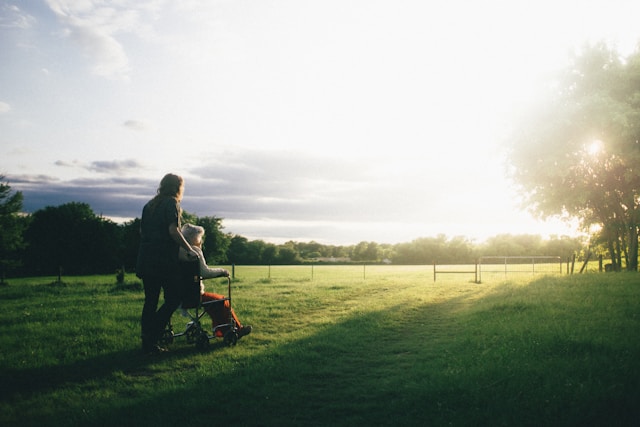Falls are among the most serious dangers facing seniors today. For older adults, a simple trip or slip can have life-altering consequences, resulting in broken bones, head injuries, reduced mobility, and even long-term disability. Beyond the physical harm, the emotional and financial toll of a fall can be devastating, impacting a senior’s independence and quality of life.
When a fall occurs due to unsafe conditions—whether in a nursing home, a business, or another public or private space—seniors have the right to seek compensation and legal protection. Pursuing a claim not only provides necessary financial support for recovery but also holds negligent parties accountable and promotes safer environments for everyone.
Understanding the Seriousness of Falls Among Seniors
Falls are the leading cause of injury among older adults. They often result in severe outcomes that younger individuals might recover from more easily. Hip fractures, traumatic brain injuries, and spinal damage are particularly common and can dramatically alter a senior’s health trajectory.
Recovery from these injuries is frequently more complicated for seniors due to existing medical conditions like osteoporosis, arthritis, or cardiovascular disease. In many cases, a fall marks the beginning of a steep decline in health and independence, making it vital to take these incidents seriously from both a medical and legal perspective. Recent accident statistics highlight the alarming scope of the problem. According to national data, approximately one in four Americans aged 65 and older falls each year, and falls result in more than 3 million emergency room visits annually. These figures underscore the need for greater awareness and proactive measures to protect vulnerable seniors.
Identifying Negligence in Fall-Related Accidents
Not every fall is legally actionable, but many occur due to negligent property maintenance or care practices. Property owners, business operators, and nursing facilities have a legal duty to maintain safe environments for visitors, customers, and residents. When they fail to uphold that duty, they can be held liable for resulting injuries.
Common examples of negligence leading to senior falls include wet or slippery floors without warning signs, poorly maintained walkways, inadequate lighting, uneven surfaces, cluttered pathways, and a lack of handrails on stairs. In nursing homes, inadequate supervision, understaffing, and failure to assist residents with mobility needs are often contributing factors.
Identifying negligence requires a careful investigation of the circumstances surrounding the fall. Gathering evidence such as photographs, witness statements, maintenance records, and incident reports strengthens the case for compensation.
The Importance of Immediate Medical Attention
After a fall, seeking immediate medical attention is crucial, even if injuries initially seem minor. Some injuries, like concussions or internal bleeding, may not present symptoms right away but can become life-threatening if left untreated.
Prompt medical evaluation not only ensures proper care but also creates critical documentation that supports any future legal claim. Medical records provide an objective account of the injuries sustained, their severity, and the recommended course of treatment, forming the backbone of a strong personal injury case.
Delays in seeking treatment can be used by defense attorneys and insurance companies to argue that the injuries were not serious or were caused by another event, potentially weakening a compensation claim.
Seeking Fair Compensation for Damages
Seniors injured in falls may face significant financial burdens, including medical bills, rehabilitation costs, home modifications, in-home care, and lost quality of life. Personal injury claims aim to secure compensation that covers both economic and non-economic damages.
Economic damages typically include hospital bills, physical therapy expenses, and future medical costs. Non-economic damages account for pain and suffering, emotional distress, loss of enjoyment of life, and, in severe cases, loss of companionship or consortium for family members.
Determining the full extent of damages requires careful evaluation of current and anticipated future needs. A skilled attorney can work with medical experts, life care planners, and financial specialists to build a comprehensive claim that accurately reflects the long-term impact of the injury.
Overcoming Challenges in Senior Fall Claims
Pursuing a personal injury claim as a senior can present unique challenges. Defense teams may attempt to argue that pre-existing conditions contributed to the injury or that the fall was unavoidable due to age-related frailty.
Overcoming these arguments requires a clear and well-documented presentation of how the negligence directly caused or significantly worsened the injuries sustained. Medical expert testimony often plays a critical role in establishing causation and refuting claims of inevitability.
Also, many seniors may be reluctant to pursue legal action, fearing it will be stressful or burdensome. However, compassionate legal representation can ease the process by handling all aspects of the case, allowing the injured party to focus on recovery without added anxiety.
Seniors who experience a fall due to negligence deserve full protection under the law. Understanding the serious consequences of falls, recognizing signs of negligence, securing prompt medical attention, and pursuing rightful compensation are essential steps in safeguarding their health and financial well-being. Legal action not only provides much-needed resources for recovery but also reinforces the principle that the safety and dignity of seniors must be respected and upheld in every environment.




Leave a Reply